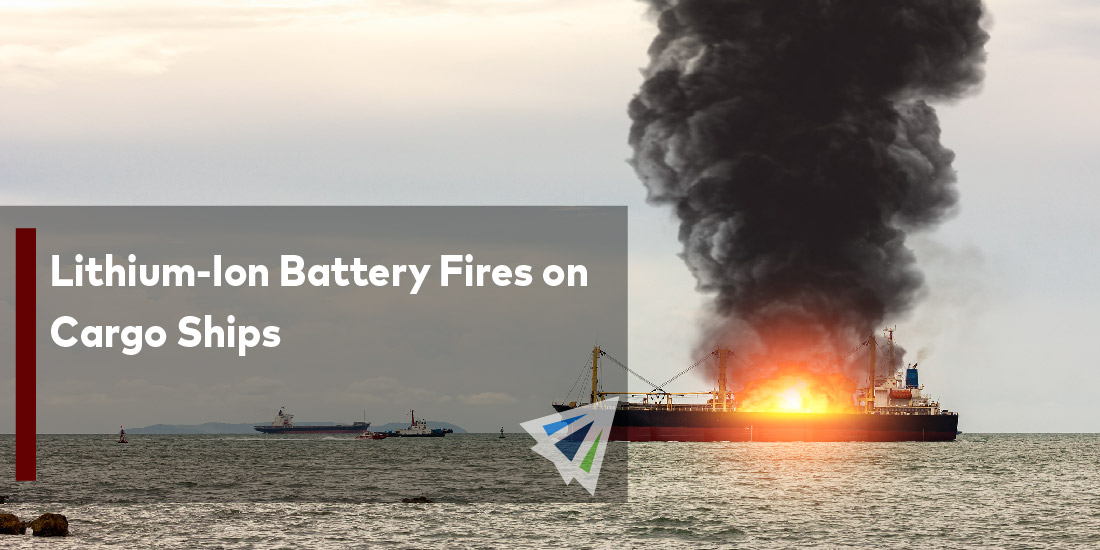Back in 2022, the shipping realm saw a jump in fires with 8 vessels lost and over 200 fire-related incidents reported, according to Allianz. This was the highest for a decade.
This increase in fires aboard ships has continued, largely contributed to by lithium-ion batteries. A big concern that’s associated with lithium-ion batteries is the occurrence of thermal runaway events that can be triggered by batteries that are poorly made, overcharged, or using incorrect charging devices.
Thermal runaway events are incidents where one exothermal process can trigger other processes, that can result in an uncontrollable increase in temperature, per Science Direct. It can cause the battery to be destroyed, start fires or explosions, etc.
Training Is Needed
“The science of batteries themselves isn’t particularly well understood, and how those batteries, if they do experience thermal runaway, behave on a ship isn’t well understood, and how the equipment aboard the ship can be used to control the fires caused by lithium-ion batteries isn’t particularly well understood,” Colin Gillespie, global head of loss prevention at NorthStandard Limited told the JOC.
All that to say, educating and equipping seafarers with the necessary training and awareness of safely transporting these batteries is important. Especially with these battery fire incidents becoming more of a concern.
From shippers and transporters to carriers and manufacturers, it’s an “all hands on deck” situation where industry stakeholders collaborating becomes vital in effectively managing the risk of these battery fires.
Maersk, for example, has created guidelines and protocols for safely handling, storing, and transporting lithium-ion batteries, to ensure compliance with international regulations to promote best practices.
Recent Fires on Ships
Recently, a cargo ship that was carrying lithium-ion batteries – that was coming from Vietnam and going to San Diego – was on fire that started on Christmas Day.
As NBC News reports, the crew on the ship released carbon dioxide into the hold and sealed it over cautious concerns that an explosion may occur.
The ship was eventually diverted to Dutch Harbor in Alaska after the ship notified the Coast Guard. So far there has been no discovery of what caused the fire, but an investigation is underway.
Looking Ahead
Should you have any questions regarding this and how it could impact your shipments, please reach out to our team today.
Additionally, we have our weekly market updates that can provide you with relevant freight news, updates, developments across the industry, and more.
